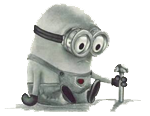|
Snowman_McK posted:can you expand on this a little? I think I know the point you're making but I also know I will never watch Project Greenlight to confirm. Basically directing as a job is about much more than successful storytelling, theres a hugely functional part of the job that is very very important and drastically more common of a job than the directors most people can name. IE think about TV directors, how much TV exists and what kind of talent is valuable to those types of productions. A directors ability to be good at his job on a technical and management level can be as valuable as their artistic ability. It can often effect the end product and a lot of good artistic intention and aspiration can be snuffed out by functionally bad directors. Im speaking mostly outside of the realm of more general audience films(romcoms, low budget comedy, kids movies, etc). You of course have a set of outliers of crazy, dysfunctional, diasterous productions and notoriously difficult directors that ended up as classic films, but often times with those the glue of those productions are the production teams, from 1st ADs, to Production Managers, to Coordinators, Line Producers, Co Producers and on and on. That burden falls on them. In the case of that season of Project Greenlight, the guy was basically a very stereotypical film buff guy and everything about the movie under the hood seemed ok, but the production was a shitshow because he just sucked at actually being on set directing. You see in real time how it becomes a management nightmare for the rest of the crew and then you get to watch the movie and see the effects on the end product. Its a perfect microcosm for getting to witness what a bad production is. Just being able to do, at all, what directors like Snyder do while maintaining a great reputation is a talent unto itself. People question why certain directors continually get work and fail to consider the job of director on a more functional level and even how stuff like agency representation work. Like I get it, I dont expect most people to know how that kind of stuff works when being critical of a director or their work, but at a certain point you kind of should consider that.
|
|
|
|

|
| # ? May 25, 2024 05:31 |
|
imo the 'snyder is brainless' take is, or should be, impossible to cling to after the justice league superman death yell shockwave was revealed to be in bvs from the start
|
|
|
|
Horizon Burning posted:imo the 'snyder is brainless' take is, or should be, impossible to cling to after the justice league superman death yell shockwave was revealed to be in bvs from the start That would require actually absorbing any new information outside the bubble.
|
|
|
|
Ghost Leviathan posted:Also it's almost been overdone but Shakespeare absolutely was doing the blockbuster movies, romcoms and action movies of his time, complete with quips, puns and fart jokes. Imagine... In 500 years, academics will be discussing the merits and beauty of Snyder's library of works and consider them classics.
|
|
|
|
the time is now old man
|
|
|
|
well why not posted:the time is now old man  Please don't remind me that I'm getting old. My knee has been killing me, so I can't walk or jog to exercise anymore. At least I can still bicycle to work.
|
|
|
|
well why not posted:the time is now old man Yeah there's several good essays/theses online about his oeuvre, I outta dig through my old bookmarks
|
|
|
|
I do like the Donner Superman, but it gets less relevant and archetypical every year, which creates space for alternate portrayals.
|
|
|
|
AccountSupervisor posted:Just being able to do, at all, what directors like Snyder do while maintaining a great reputation is a talent unto itself. People question why certain directors continually get work and fail to consider the job of director on a more functional level and even how stuff like agency representation work. Like I get it, I dont expect most people to know how that kind of stuff works when being critical of a director or their work, but at a certain point you kind of should consider that. Pretty much why folks like Roger Corman and Lloyd Kaufman will always have mad respect from me, even if I don't really watch their stuff. They know how to handle the hustle competently and sometimes they make something really special. Any director that you know by name who makes something big budget with a signature style is someone who is very good at what they do, even if you aren't a fan of what they make. Anyone can be a critic, few can create.
|
|
|
|
josh04 posted:Academic work has issues but imo the things being griped about ITT aren't really the point. It's not supposed to be a venue for the most entertaining writing or the most comprehensive encyclopedia of trivia or even the most widely-read reviewers: the point of academic work is to have a particular degree of rigor and review such that each piece of work situates itself in an intellectual tradition. That work might still be total rear end, or the entire branch of thinking it situates itself in might turn out to be discredited nonsense, but it's fundamentally different to even the most erudite opinion piece in the AV Club. Postmodern xenoBarbie might be useless nonsense or it might incredibly fertile ground for the next thirty years of work - what a general public make of it as a review is largely irrelevant. Well said. As you wrote, it’s not on the writer to ensure their work has as much commercial appeal as the matter they are dealing with, so what’s totally left out of this is any responsibility of the reader. I’d add that it’s far more important for the writer to have some historical/formal grasp of the medium itself, rather than a weighing scale between “whether their primary expertise is relevant” vs. “how familiar they are with the IP’s empire”. I don’t see unfamiliarity of the latter as a roadblock, but familiarity a possible detriment. KVeezy3 fucked around with this message at 14:27 on Sep 21, 2023 |
|
|
|
Horizon Burning posted:imo the 'snyder is brainless' take is, or should be, impossible to cling to after the justice league superman death yell shockwave was revealed to be in bvs from the start lol I didn't notice that until you pointed it out.
|
|
|
|
KVeezy3 posted:Well said. As you wrote, it’s not on the writer to ensure their work has as much commercial appeal as the matter they are dealing with, so what’s totally left out of this is any responsibility of the reader. Though comes to mind Ursula Le Guin's whole essay about how genre snobbery means that critics get some really stupid reads on media- like Harry Potter being thought of as original and groundbreaking when it really wasn't, and critics come off as incredibly juvenile and silly when they're surprised by what are standard genre tropes to people who actually read those books. It basically comes off as 'guy who's only seen Boss Baby'.
|
|
|
|
I once brought up Let the Right One In in a film class and the professor completely poo poo on it. I think she was mistaking it for Twilight. There's my story about why academia is trash
|
|
|
|
I guess you brought the wrong one in 
|
|
|
|
Ghost Leviathan posted:Though comes to mind Ursula Le Guin's whole essay about how genre snobbery means that critics get some really stupid reads on media- like Harry Potter being thought of as original and groundbreaking when it really wasn't, and critics come off as incredibly juvenile and silly when they're surprised by what are standard genre tropes to people who actually read those books. It basically comes off as 'guy who's only seen Boss Baby'. If an analysis is worthless because of unfamiliarity with the tropes of a genre, then that belies much bigger problems. Besides, there are many classic works that are (retroactively) trope laden. For the topic at hand, do people believe it's better to consume all of the spidermans media in order to grasp the essence of those multiverse spider man movies? KVeezy3 fucked around with this message at 13:12 on Sep 22, 2023 |
|
|
|
A functional understanding of genre is media literacy and not the same thing as expecting an encyclopedic dissection of a comic book character's publication history.
|
|
|
|
The only spider-man you need is Newspaper Spider-Man
|
|
|
|
Ghost Leviathan posted:Though comes to mind Ursula Le Guin's whole essay about how genre snobbery means that critics get some really stupid reads on media- like Harry Potter being thought of as original and groundbreaking when it really wasn't, and critics come off as incredibly juvenile and silly when they're surprised by what are standard genre tropes to people who actually read those books. It basically comes off as 'guy who's only seen Boss Baby'. Got a link to that essay?
|
|
|
|
Bongo Bill posted:Got a link to that essay? As an Ursula K. Le Guin fan, I'm going to butt in here. I wasn't able to find a full essay in which she addresses Harry Potter. Instead I found a couple of quotes. The first is from this 2004 interview with The Guardian: quote:Q: Nicholas Lezard has written 'Rowling can type, but Le Guin can write.' What do you make of this comment in the light of the phenomenal success of the Potter books? I'd like to hear your opinion of JK Rowling's writing style She later had a 2005 interview with The Guardian for which I've been unable to find a transcript, but they have some quotes from her here: quote:Le Guin, who also writes realist fiction, poetry, essays and books for young children, says: "I'm impatient with genre as a label of quality. But if we could stop critics being ignorant, genre would be interesting." The question of whether JK Rowling had ripped her off is in reference to Le Guin's 1968 novel A Wizard of Earthsea, about a boy who goes to a wizarding school, though in a more fantastical setting than Harry Potter's alternate-reality 1990s. Her big essay on genre is "Despising Genre" from her short-story collection The Birthday of the World, which addresses the ghettoization of genre fiction, the likely cause of critics misapprehension of Harry Potter's originality. It doesn't seem to be available online, so I've reproduced it at the bottom of this post. But to address something else first: KVeezy3 posted:If an analysis is worthless because of unfamiliarity with the tropes of a genre, then that belies much bigger problems. Besides, there are many classic works that are (retroactively) trope laden. If you read the quotes above, she didn't claim that critics couldn't understand Harry Potter because of their unfamility with genre fiction or that their analysis is worthless. It was specifically a response to critics praising Harry Potter's originality. And it is absolutely fair to say that, if you don't generally read genre fiction, then you shouldn't be judging whether a piece of genre fiction is original. I remember having a similar conversation about Cormac McCarthy's The Road, which is a good book from a hell of a writer, but was similarly praised for the originality of its genre elements by people who only read literary fiction. So, in regards to the multiversal Spider-Men, it's not that you have to consume all Spider-Man media in order to comment on them, but if you specifically want to write about, say, the relationship between Spider-Man: Across the Spider-Verse and the many comic books it draws from, you should probably have read those comic books. Ursula K. Le Guin, Despising Genre posted:Basically my attitude is that genre is A) an unpronounceable French word; B) a very useful descriptive tool; and C) a pernicious instrument of prejudice.
|
|
|
|
Thanks.
|
|
|
|
"genre" is an extremely useful identifier, because if something is "grenre" it's got a chance at being fun and interesting, while if something is not, it probably isn't
|
|
|
|
feedmyleg posted:"genre" is an extremely useful identifier, because if something is "grenre" it's got a chance at being fun and interesting, while if something is not, it probably isn't this mfer said 'grenre'
|
|
|
|
Yo, ask the horror thread what they think about genre. They will be extremely friendly and chill, but also kinda critical.
|
|
|
|
Horizon Burning posted:imo the 'snyder is brainless' take is, or should be, impossible to cling to after the justice league superman death yell shockwave was revealed to be in bvs from the start Wow I never ever caught this, they are absolutely there. 2:17 you can clearly see them in the wide shot https://www.youtube.com/watch?v=ttEZ7b4Cf9w
|
|
|
|
I'm almost certain Robot Style had brought up that the shockwaves persistent in BvS through to being a plot component in ZSJL was a thing before ZSJL was released.
|
|
|
|
feedmyleg posted:"genre" is an extremely useful identifier, because if something is "grenre" it's got a chance at being fun and interesting, while if something is not, it probably isn't man i am halfway through a loving warhammer novel and even i'm embarassed to be in the same thread as this post
|
|
|
|
Some of the best authors just write blatant genre poo poo anyway like McCarthy and Atwood and Pynchon but then when people ask them they are just like “what are you talking about what’s sci-fi lol check this weirdo out”
|
|
|
|
Le Guin rules so hard
|
|
|
|
|
Barry Foster posted:Le Guin rules so hard I prefer Le Gruin
|
|
|
|
“JKR in The Times” posted:The most popular living fantasy writer in the world doesn't even especially like fantasy novels. It wasn't until after Sorcerer's Stone was published that it even occurred to her that she had written one. "That's the honest truth," she says. "You know, the unicorns were in there. There was the castle, God knows. But I really had not thought that that's what I was doing. And I think maybe the reason that it didn't occur to me is that I'm not a huge fan of fantasy." Rowling has never finished The Lord of the Rings. She hasn't even read all of C.S. Lewis' Narnia novels, which her books get compared to a lot. There's something about Lewis' sentimentality about children that gets on her nerves. "There comes a point where Susan, who was the older girl, is lost to Narnia because she becomes interested in lipstick. She's become irreligious basically because she found sex," Rowling says. "I have a big problem with that."* “Terry Pratchett” posted:
“Neil Gaiman” posted:Mostly what it makes me think of is the poem in Kingsley Amis and Robert Conquest's NEW MAPS OF HELL, which went, from memory, The nice thing is that all the arguments are cyclical because genre snobs will never stop gate keeping, but the internet means you can read both authors discussing their views on usenet and blogs.
|
|
|
|
I love Le Guin discusso, I just finished "Worlds of Exile and Illusion" a collection of her three Hainish Cycle novels. Can't recommend them enough, they are so beautifully written, entertaining, mentally engaging and thought provoking. And for three novels where SO MUCH happens, it clocks in at only 370 pages.
|
|
|
|
teagone posted:I'm almost certain Robot Style had brought up that the shockwaves persistent in BvS through to being a plot component in ZSJL was a thing before ZSJL was released. Did some sleuthing in the old thread. Robot Style made this post in 2019: Robot Style posted:
|
|
|
|
The Grauniad posted:Q: Nicholas Lezard has written 'Rowling can type, but Le Guin can write.' What do you make of this comment in the light of the phenomenal success of the Potter books? I'd like to hear your opinion of JK Rowling's writing style Yep, typical Guardian, some real-rear end neoliberal more-money-means-better-than question-begging right there. Le Guin, bless her, doesn't rise to the bait though.
|
|
|
|
There is this bit from Le Guin's "Genre: A Word Only a Frenchman Could Love"quote:A writer sets out to write science fiction but isn’t familiar with the genre, hasn’t read what’s been written. This is a fairly common situation, because science fiction is known to sell well but, as a subliterary genre, is not supposed to be worth study—what’s to learn? It doesn’t occur to the novice that a genre is a genre because it has a field and focus of its own; its appropriate and particular tools, rules, and techniques for handling the material; its traditions; and its experienced, appreciative readers—that it is, in fact, a literature. Ignoring all this, our novice is just about to reinvent the wheel, the space ship, the space alien, and the mad scientist, with cries of innocent wonder. The cries will not be echoed by the readers. Readers familiar with that genre have met the space ship, the alien, and the mad scientist before. They know more about them than the writer does.
|
|
|
|
There it is. Good find.
|
|
|
|
Buttered toast is much better than Harry Potter, however.
|
|
|
|
That's the one I was thinking of, yeah. It's like a goon who can't stop bitching about how awful, exploitative and formulaic anime is and then one day they run in gushing about Sword Art Online.
|
|
|
|
like how DBZ doesn’t count, or how Pokémon doesn’t count, or how Digimon doesn’t count, or how
|
|
|
|
Zack Snyder's Ursula K Le Guin's A Wizard of Earthsea.
|
|
|
|

|
| # ? May 25, 2024 05:31 |
|
Just read this part from Birthright writer Mark Waid on his review of man of steel. The rest of his review complains about Superman not saving enough people and Superman snapping necks, but this was a good read of pa Kent. “And I think you’d be surprised to find that I loved everything about Jonathan Kent. I loved his protectiveness, even when it made him sound like an rear end in a top hat. (“Maybe.”) And I loved, loved, loved that scene where Clark *didn’t* save him, because Goyer did something magical–he took two moments that, individually, I would have hated and he welded them together into something amazing. Out of context, I would have hated that Clark said “You’re not my real dad,” or whatever he says right before the tornado. And out of context, I would have *loathed* that Clark stood by frozen with helplessness as the tornado killed Jonathan. But the reason that beat worked is *because* Clark had just said “You’re not my dad,” the last real words he said to Pa. Tearful Clark choosing to go against his every instinct in that last second because he had to show his father he trusted him after all, because he had to show Pa that Pa could trust *him* and that Clark *had* learned, Clark *did* love him–that worked for me, hugely. It was a very brave story choice, but it worked. It worked largely on the shoulders of Cavill, who sold it. It worked as a tragic rite of passage. I kinda wish I’d written that scene.”
|
|
|












































